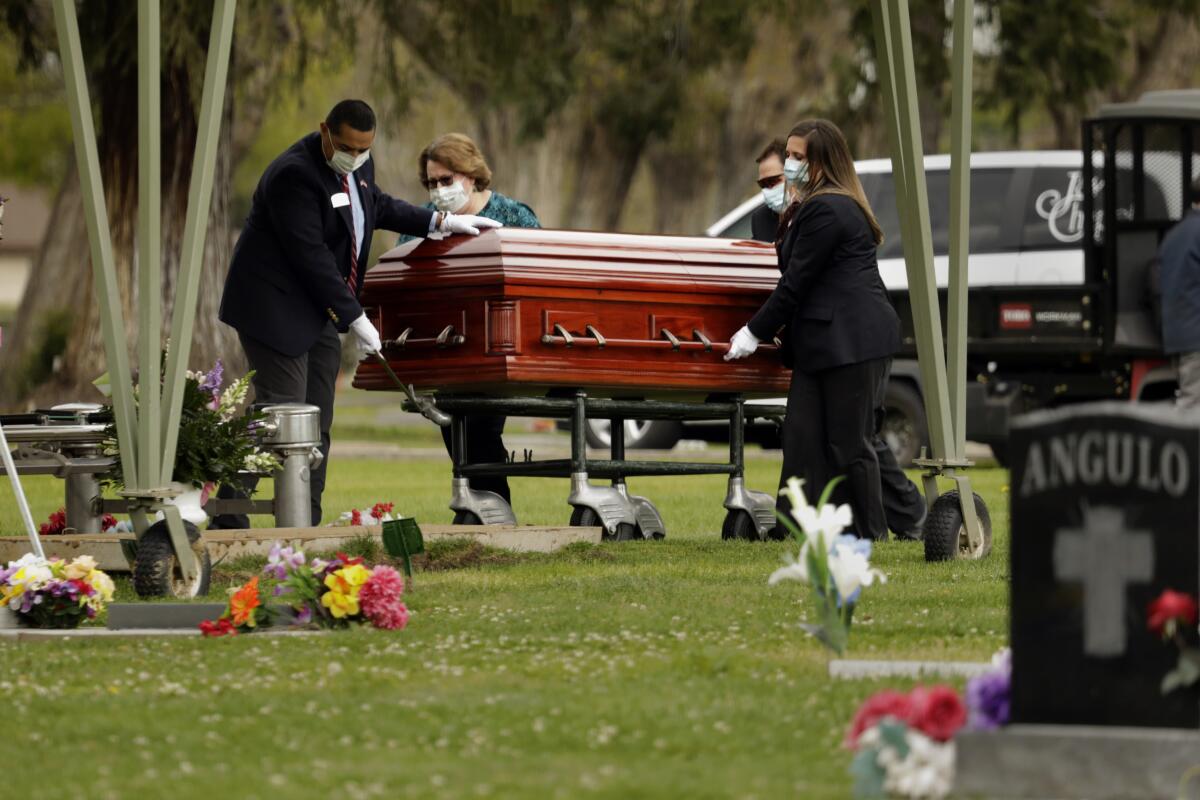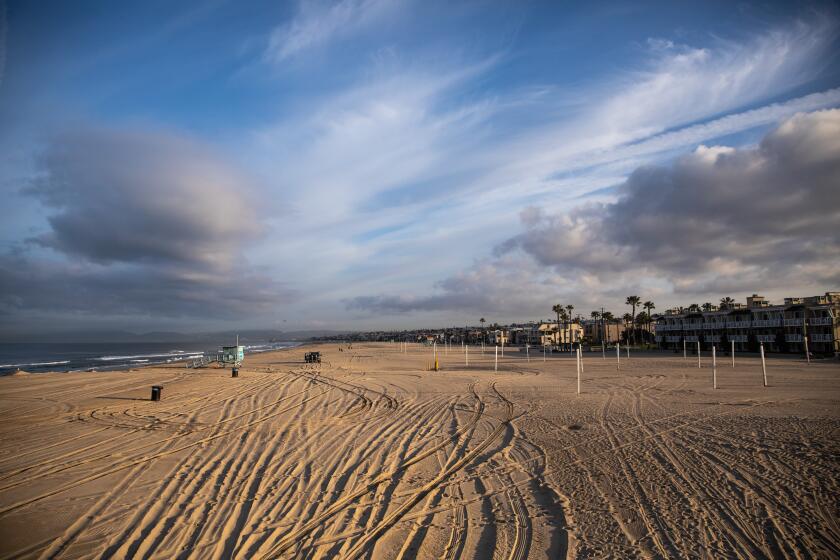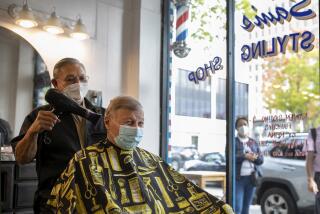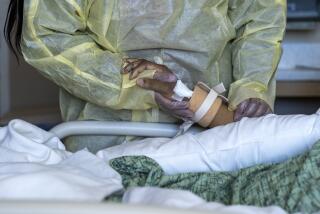Editorial: The psychological toll of the coronavirus is a pandemic of its own

- Share via
In the midst of a pandemic, sometimes a single death can bring home the vast scope of the crisis. Dr. Lorna M. Breen, an emergency room physician at New York-Presbyterian Allen Hospital, treated countless COVID-19 patients until she contracted the disease herself. After seeming to recover, she returned to work but soon was sent home again, eventually joining family members in Charlottesville, Va., where on Sunday Breen, who had no history of mental illness, killed herself. “Make sure she’s praised as a hero, because she was,” her father told reporters. “She’s a casualty just as much as anyone else who has died.”
We know how to count the people infected or killed by the virus. We can tally jobs lost, economic activity stalled, even the number of students suddenly being taught at home instead of in their classrooms. We have all learned the value of six feet of separation, an unintended invocation of “six feet under,” deemed by London officials the proper depth for burying a corpse during a 1665 plague outbreak. But how do we tally up something as amorphous as fear or depression, or loneliness or despair? Where do we assign the death of Dr. Breen, whose encounters with the sickness and death of others appear to have sent her reeling into such a dark and irrecoverable place?
The Centers for Disease Control and Prevention reported recently that more than 9,200 healthcare workers had tested positive for the virus and 27 had died. But it also said it had no doubt that the true tallies were much higher, given the scarcity of testing. In Detroit, police officers have fallen ill by the hundreds. The EMS1.com website counts nearly two dozen EMTs and paramedics who have died of the disease nationwide. The list didn’t include John Mondello, 23, a rookie EMT in the Bronx who killed himself Friday after telling a friend he felt “a lot of anxiety witnessing a lot of death” and that “he’d feel it was a heavy experience when he’d fail to save a life.” He, like Breen, is a victim of this crisis if not of the virus itself.
How did we allow ourselves to get to this point?
The stress is everywhere, including among the children of healthcare workers who worry about their parents’ safety, just as the parents worry about bringing the virus home to their kids. Nearly half of adult Americans reported that their “mental health had been negatively impacted” by the crisis, according to a poll by Kaiser Family Foundation. That feeling was more prevalent among those obeying stay-at-home orders, which experts warn can exacerbate preexisting mental health and substance abuse issues. So what came first, the anxiety or the isolation? Does it really matter? There are rational fears at play here.
Those who dismiss the coronavirus as just another flu embrace dangerous ignorance. Researchers and front-line medical professional are still trying to understand the scope of the virus’ impact on the human body. There are reports of severe clotting among some patients, including some in their 40s who died of strokes. Doctors worry that some victims may survive the infection but suffer significant long-term damage to vital organs — the heart, the liver, the kidneys. And it’s unclear whether surviving a bout of COVID-19 inoculates someone from falling ill again.
No wonder we’re anxious. No wonder we glare at the unmasked, recoil from another person’s cough, worry that a throat tickled by seasonal allergies might actually portend something more threatening. We see images of folks frolicking at the beach on a warm spring day and stifle the urge to shout, “What the hell is wrong with you people?” With anxiety comes frustration and impatience. You see it too among those who protest stay-at-home orders, demonstrations rooted in politics but framed by anxiety over the economic and psychic fallout from a society in stasis.
The crazy quilt of closures and the ad hoc reopenings we’re seeing are not going to work for California.
And then there’s the grief, amplified by distance as the sick die far from the touch of loved ones. Making matters worse, funerals, a rite of cultural catharsis, are being delayed or held online or, in some cases, conducted with the casket or the mourners on the move. We are by and large a social species, and to be walled off from one another by an invisible curse takes a psychological toll, as does watching bills pile up with few prospects for work, or waiting for a layoff notice, or watching your business disintegrate from behind locked doors. And walking, masked, into a grocery store six weeks after the crisis took root to find empty shelves is a jarring turnabout here in the land of the plenty.
There are some truths that can’t be tallied. The resonant truth of this near-global health crisis is that none are safe and all are affected, even if it’s just by nagging doubts and dark uncertainties in the corners of our minds.
More to Read
A cure for the common opinion
Get thought-provoking perspectives with our weekly newsletter.
You may occasionally receive promotional content from the Los Angeles Times.











